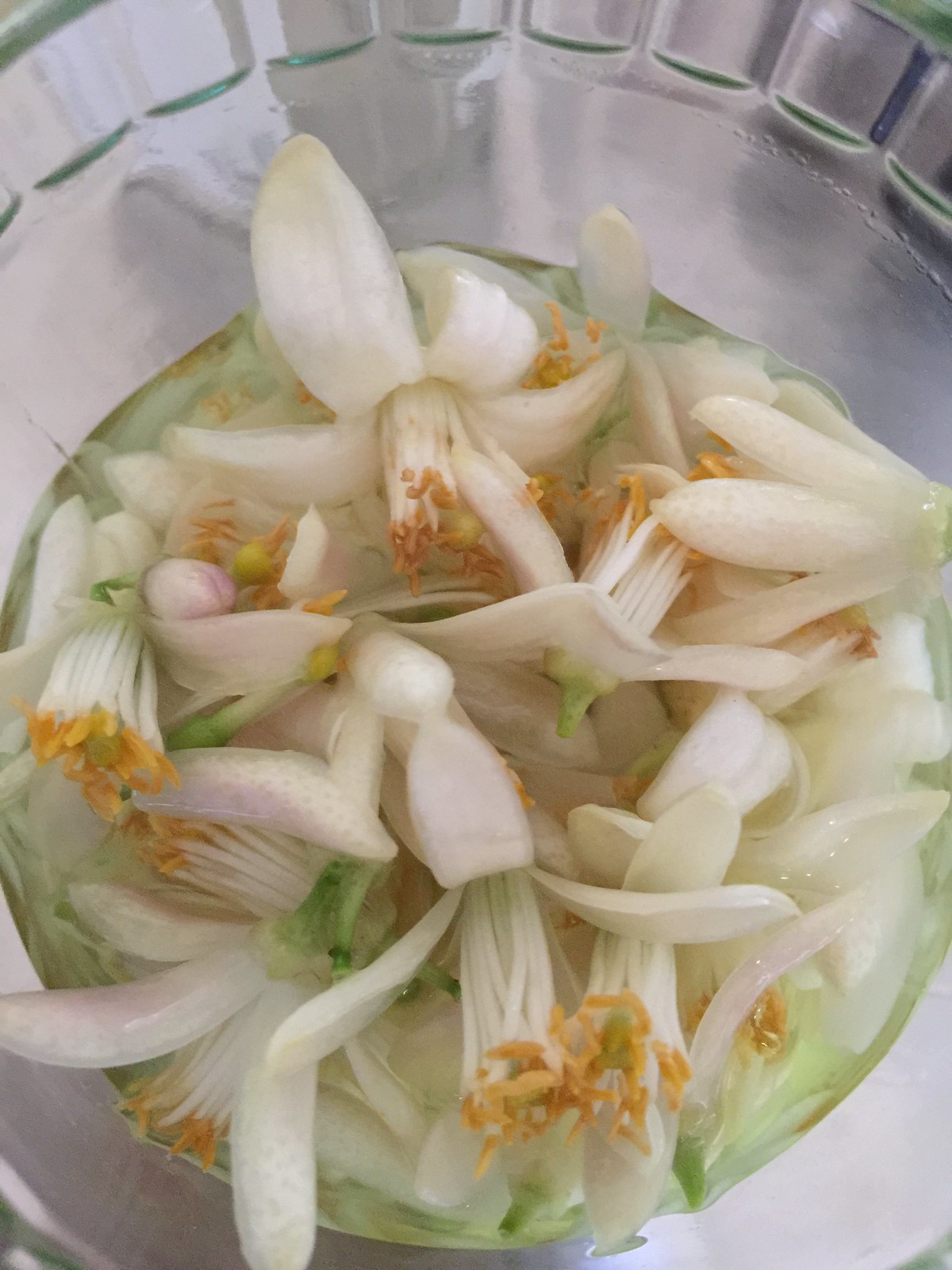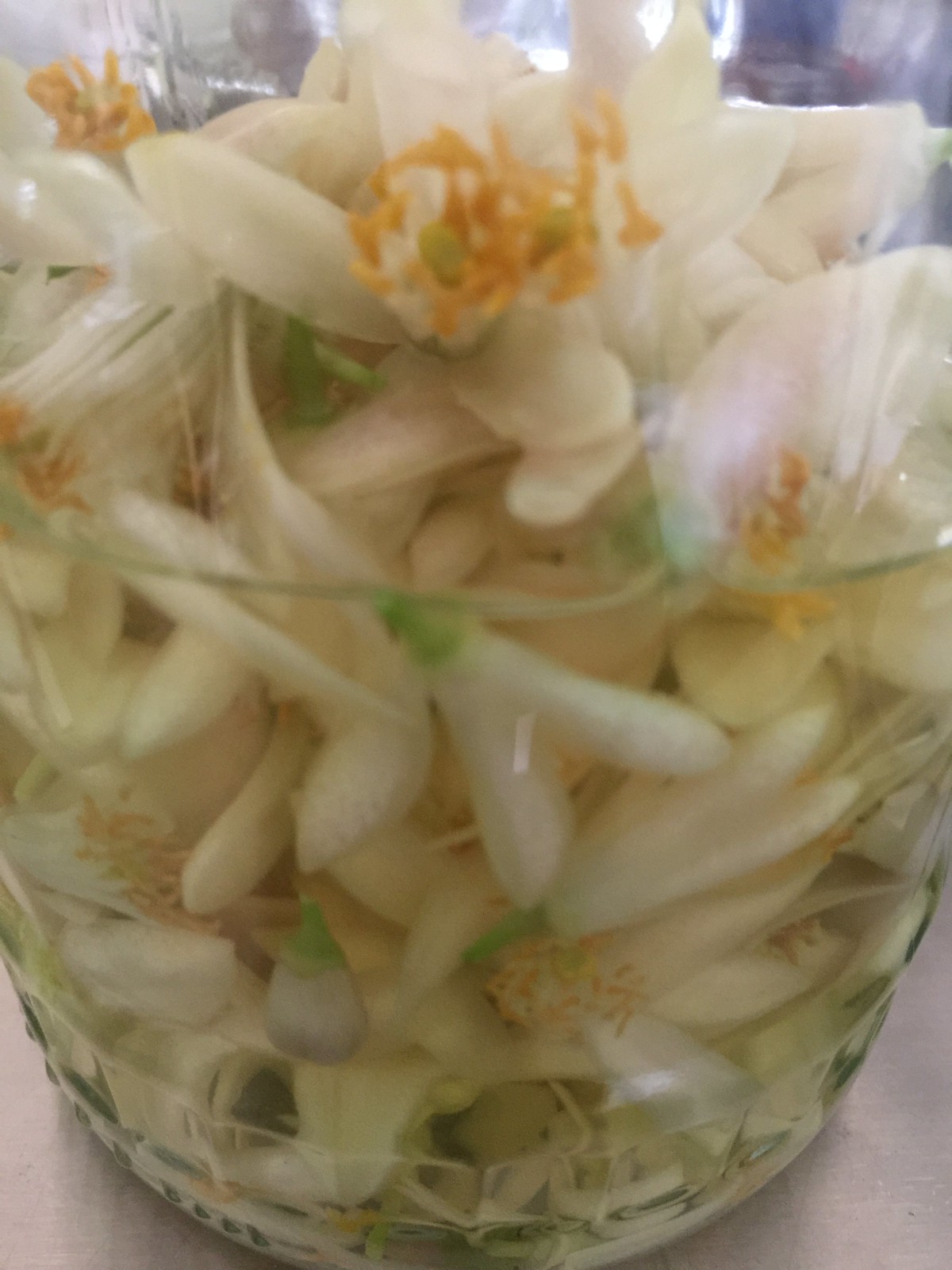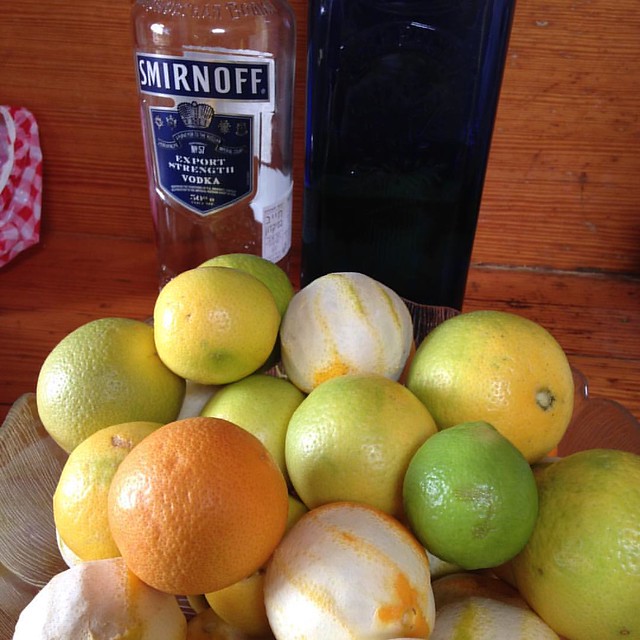Neroli Tincture

Often I'm asked if it is possible to make orange blossoms tincture. My snarky response is that you can tincture anything. Can't guarantee the results though... Fresh flowers, generally speaking, don't let themselves well to alcoholic tincturing. That is why enfleurage and solvent extraction techniques were invented in the first place. Otherwise why bother with such sophisticated process if it is possible to make such an easy homemade extraction with alcohol?
There are a few problems at play. One is the water content in the flowers. Once the flowers sit in the alcohol, it dries them up completely, which means it sucks all the moisture out of them. That's what alcohol does. It readily bonds with the water. This dilutes the alcohol's solvent powers.
The other problem is that the alcohol dissolves also less desirable aspects of the plant matter, resulting in a very vegetal smelling tincture. It may be fine for medicinal purposes (which is the the main objective of most fresh plant matter tinctures). For fine perfumery - not so much.
Either way, one needs to watch out for over-steeping when preparing tinctures. Less is often more. Meaning, it is better to recharge the alcohol several times with the flowers until the desired odour strength is achieved. This is akin to steeping tea: Steeping the same amount of tea over a longer period of time will definitely give you a stronger tea, but not as fragrant and delicious as one that you've paid attention to preparing according to the appropriate steeping time and amount of tea leaf. When wishing you prepare a stronger tea, there is no way around using more tea. This is not the time or place to be thrifty with your raw materials. Remember the time and effort taken to grow, harvest, clean and infuse your plants. Remember how much you paid for that 96% alcohol. Don't waste these resources.
So, with all that being said, the neroli tincture (bitter orange blossoms steeped in alcohol) smelled nice enough. I was smart enough to strain it before turning vegetable. It wears ok on the skin. But needs another recharge or two. In my opinion, aside from the cache of using something from my own orchard in my perfume, it does not offer anything more than what my high quality neroli oil and orange blossom absolutes have to offer. But we shall see once I use it within a composition. I will include some in my upcoming batch of Zohar (my orange blossom soliflore). Maybe it will transform into something more WOW inducing then. Either way, the process was fun. But I a more inclined to stick to traditional raw materials with these flowers and get a still ASAP to make my own orchard hydrosoles and perhaps even oils some day soon.



